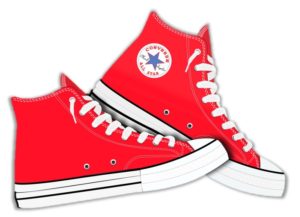A year or so ago, I became a member of the TED Translator program. Since I love to learn new things, you can imagine my delight at having the chance to translate some of my favorite TED talks from English to French or from French to English, and to help others with their translations. What startled me at first was how many idiomatic expressions we all use all the time. Some can be translated easily, some require finessing to capture the meaning and tone of the expression. Very few, if any, can be translated word-for-word. I participate in a weekly meetup of francophones of all levels, so I get to hear some pretty colorful mistakes. A frequent one is translating an English expression word-for-word and thinking it’s French.
If you try this tactic and a French person understands you, you’re ahead of the game. (Voila! An idiomatic expression!) But best to learn a few popular French expressions and try them out on unsuspecting native speakers. They’ll be duly impressed with your grasp of argot (slang) and might even teach you a new phrase or two.
To get you started, here are five of my favorite French idiomatic expressions…
Un panier de crabes
You might say that translating expressions into another language opens up a can of worms. Except that in French, the notion of a can of worms in nonsensical. Instead, the French talk about a guêpier, which is a wasp’s nest, or a sac de nœuds, which is a bag of knots. But my favorite French equivalent is un panier de crabes, which is a basket of crabs, because it’s so visual. You can just imagine what happens when you put a bunch of live crabs in a basket. Pinch, pinch, pinch. Definitely a situation you want to avoid.

Etre aux anges
On the other hand, if you’re euphoric, you would not be on cloud nine or in seventh heaven because those phrases don’t translate literally (though I’ve heard beginners say, Je suis sur le nuage neuf or Je suis au septième ciel). In French, you would be aux anges, which implies you’re hanging with the angels. Which is how you might feel if you succeed in slipping a well-translated expression past the discerning ears of a native French speaker.

Un secret de Polichinelle
Polichinelle, the French version of Pulcinella, is the commedia dell’arte character that evolved into Punch of Punch-and-Judy fame. If you’ve ever seen a performance of these puppets, you’ll know that Punch is a bit of a dimwit. The audience is forever trying to clue Punch in on the “open secret” that another puppet is sneaking up on him from behind to clobber him over the head or deliver a swift kick farther south. Un secret de Polichinelle is an especially timely expression these days given TIME Magazine’s choice of person of the year: the silence breakers who blew open the “open secret” culture of sexual predators.
Se coiffer avec un rateau
It used to be that tidy hairdos were a good thing. Then bedhead (cheveux en bataille, literally “hair in battle”) became the rage. But whether you spend two seconds or two hours making your hair look neat or intentionally messy, you probably don’t want people whispering behind your back that you do your hair with a garden rake. I have a friend who translates this expression as, “to comb one’s hair with a nail,” which I find hilarious. There’s actually a woman I’m acquainted with who seems to comb her hair with either a nail or a rake. I’m not sure what kind of look she’s trying to achieve, but every time I see her I’m reminded to rake up those last few autumn leaves that have fallen on my lawn.

Etre bien dans ses baskets
In English, one can feel good in one’s skin. In French, you could say the same thing (être bien dans sa peau) but I prefer the equivalent expression of être bien dans ses baskets, or to feel good in one’s sneakers. I don’t know why sneakers and not every other type of shoe. Personally, I feel perfectly at ease when I’m running around at home in my sheepskin-lined slippers or out in public in my suede lug sole loafers. Put me in a pair of sneakers and I’d certainly run faster but I wouldn’t feel as good. Hence, I “feel good in my sneakers” when not wearing sneakers.

So there you have it: five useful expressions to try out on your French friends. Bonne chance! as they say in French (Good luck!), though I prefer Bon Courage! because it implies that the thing you’re setting off to do isn’t easy. But at least trying out one or more of these expressions should be easier than combing your hair with a rake.
Merci beaucoup this week to my friend and linguistic exchange partner, Anne Catherine Desmichelle Chardon, who taught me un panier de crabes and who gently corrected me when I referred to combing one’s hair with a nail. I think I’ll just stick with my old standby—at least when talking about myself—and continue to refer to waking up with Edward Scissorhands hair.
